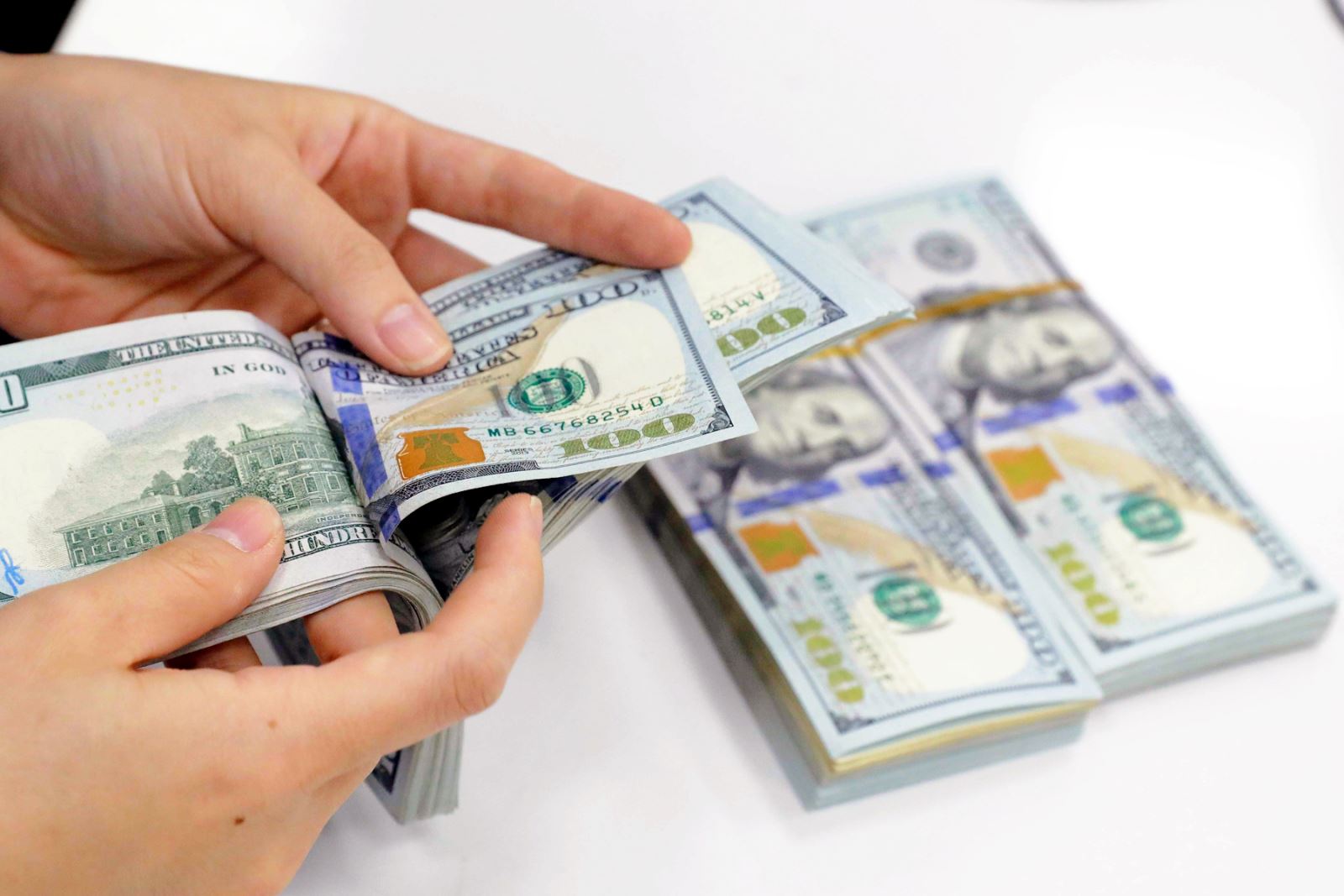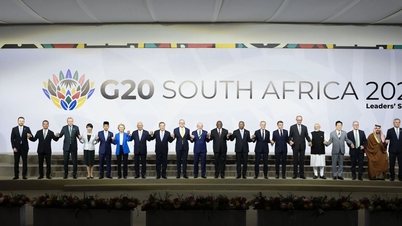
President Trump said on October 10 that he would impose an additional 100% tariff on imports from China starting on November 1 or sooner, a move that could bring tariffs close to the levels that sparked fears of a severe recession and financial chaos in April 2025.
Mr Trump also said he might cancel a planned meeting with Chinese President Xi Jinping after China tightened controls on rare earth exports. The US president’s comments sent the euro and yen higher against the greenback.
The dollar index fell 0.4% to 98.99. The dollar index is still up 1.66% this week, its biggest gain since September 2024, after the yen and euro were pressured this week by regional fiscal concerns.
Traders are also watching for signs of when the US government will reopen and for data releases that will influence the US Federal Reserve's policy decisions.
The US Bureau of Labor Statistics said on October 10 that it will release its September 2025 consumer price inflation report on October 24 to help the Social Security Administration determine its annual cost-of-living adjustment for 2026. The decision comes after many Fed officials expressed concerns at their most recent meeting about inflation risks.
Meanwhile, according to the recently released ADP National Employment Report, the US private sector continued to show signs of weakness as the number of jobs decreased by 32,000 in September 2025, the largest decrease since March 2023.
The figure marked a sharp decline from August's revised decline of just 3,000 jobs and was contrary to the forecasts of economists surveyed by the Wall Street Journal, who expected the US economy to create about 45,000 new jobs last month.
According to CME Group's FedWatch Tool, traders are pricing in a 97% chance the Fed will cut rates by 0.25 percentage points at its October 2025 meeting, while the probability of another rate cut in December 2025 is 92%.
Meanwhile, the yen fell last week on concerns that the Bank of Japan (BoJ) may not raise interest rates again this year after the surprise victory of fiscal dovish candidate Sanae Takaichi as leader of the ruling party, raising concerns that the country's authorities will need to intervene to support the yen. Japanese Finance Minister Katsunobu Kato said on October 10 that the government is concerned about excessive volatility in the foreign exchange market.
Figures released by the Japanese Ministry of Health , Labor and Welfare on October 8 showed that real wages in August 2025 fell 1.4% compared to the same period last year, marking the eighth consecutive month of decline. The main reason is that the situation of prices rising faster than the rate of nominal wages continues.
The yen rose 0.86% against the greenback to 151.73 yen per dollar on Friday. However, the dollar gained 2.9% against the yen this week, its biggest gain since September 2024. The yen weakened from 147.44 yen per dollar at the end of the previous week.
Meanwhile, the euro rose 0.38% in the final session of the week, at 1.1607 USD/euro but fell 1.15% for the whole week, the sharpest decline since July 2025, due to the unstable political situation in France.
The governor of the French central bank (BdF), François Villeroy de Galhau, warned that the prolonged political instability in France is directly affecting the domestic economy, reducing the country's economic growth by 0.4-0.5 percentage points, equivalent to a loss of about 12-15 billion euros ($13.8-17.3 billion). According to him, the current political turmoil is causing households to increase savings and cut consumption, while businesses are delaying investment plans.
Mr. Villeroy de Galhau confirmed that France's growth in the third quarter of 2025 would only reach 0.3%, the same as the previous quarter, and the country's growth for the whole year of 2025 is expected to reach about 0.7%.
Political deadlock has made it difficult to pass an austerity budget and has raised investors' concerns about France's widening budget deficit.
Meanwhile, there are signs of slowing growth in other key economic drivers such as Germany. Weak German economic data has left the euro more vulnerable to worrying news about the political situation in France, said Jane Foley, head of strategy at Rabobank.
Unemployment in Germany surpassed 3 million for the first time in a decade in August 2025, as the German economy has been in a prolonged slump since the COVID-19 pandemic, followed by the conflict between Russia and Ukraine. Unemployment is not expected to fall significantly, to an annual average of around 2.8 million, according to government forecasts.
Source: https://baotintuc.vn/kinh-te/dong-usd-chiu-suc-ep-do-nguy-co-thuong-chien-my-trung-leo-thang-20251011133110247.htm




![[Photo] Parade to celebrate the 50th anniversary of Laos' National Day](/_next/image?url=https%3A%2F%2Fvphoto.vietnam.vn%2Fthumb%2F1200x675%2Fvietnam%2Fresource%2FIMAGE%2F2025%2F12%2F02%2F1764691918289_ndo_br_0-jpg.webp&w=3840&q=75)


![[Photo] Worshiping the Tuyet Son statue - a nearly 400-year-old treasure at Keo Pagoda](/_next/image?url=https%3A%2F%2Fvphoto.vietnam.vn%2Fthumb%2F1200x675%2Fvietnam%2Fresource%2FIMAGE%2F2025%2F12%2F02%2F1764679323086_ndo_br_tempimageomw0hi-4884-jpg.webp&w=3840&q=75)





































































































Comment (0)